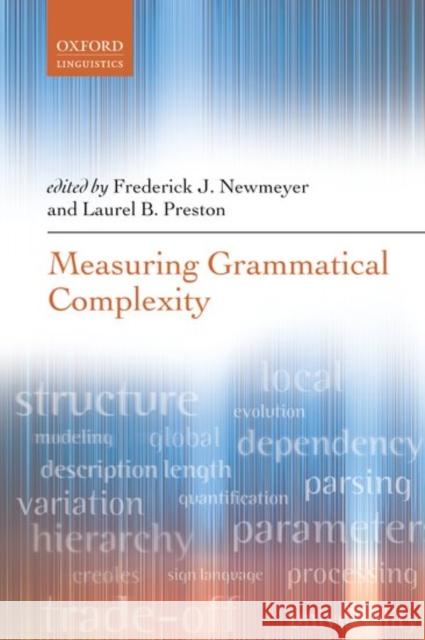Measuring Grammatical Complexity » książka
Measuring Grammatical Complexity
ISBN-13: 9780198783565 / Angielski / Miękka / 2017 / 392 str.
This book examines the question of whether languages can differ in grammatical complexity and, if so, how relative complexity differences might be measured. The volume differs from others devoted to the question of complexity in language in that the authors all approach the problem from the point of view of formal grammatical theory, psycholinguistics, or neurolinguistics. Chapters investigate a number of key issues in grammatical complexity, taking phonological, morphological, syntactic, and semantic considerations into account. These include what is often called the 'trade-off problem', namely whether complexity in one grammatical component is necessarily balanced by simplicity in another; and the question of interpretive complexity, that is, whether and how one might measure the difficulty for the hearer in assigning meaning to an utterance and how such complexity might be factored in to an overall complexity assessment.
Measuring Grammatical Complexity brings together a number of distinguished scholars in the field, and will be of interest to linguists of all theoretical stripes from advanced undergraduate level upwards, particularly those working in the areas of morphosyntax, psycholinguistics, neurolinguistics, and cognitive linguistics.











